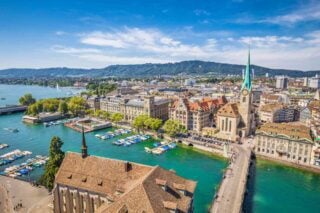
Discover the Best Expat Destinations That Won’t Break the Bank
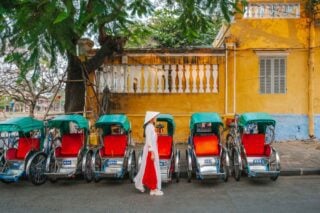 Many people assume that living abroad requires a hefty budget. However, in reality, anyone can lead a fulfilling expat life without spending a fortune. According to the 2024 InterNations Expat Insider Survey, Vietnam, Mexico, Thailand, Indonesia, and Colombia are among the cheapest countries to live in.
Many people assume that living abroad requires a hefty budget. However, in reality, anyone can lead a fulfilling expat life without spending a fortune. According to the 2024 InterNations Expat Insider Survey, Vietnam, Mexico, Thailand, Indonesia, and Colombia are among the cheapest countries to live in.
However, it’s not just the low cost of living that makes these locations attractive. Friendly locals, rich cultural experiences, and overall high quality of life make them ideal for anyone seeking a rewarding life abroad.
So, if you’re craving a fresh start abroad, here’s an overview of the most budget-friendly destinations that should be at the top of your list.
Note: All cost-of-living figures are from LivingCost.org and are up to date as of November 2024.
Many people assume that living abroad requires a hefty budget. However, in reality, anyone can lead a fulfilling expat life without spending a fortune. According to the 2024 InterNations Expat Insider Survey, Vietnam, Mexico, Thailand, Indonesia, and Colombia are among the cheapest countries to live in.
However, it’s not just the low cost of living that makes these locations attractive. Friendly locals, rich cultural experiences, and overall high quality of life make them ideal for anyone seeking a rewarding life abroad.
So, if you’re craving a fresh start abroad, here’s an overview of the most budget-friendly destinations that should be at the top of your list.
Note: All cost-of-living figures are from LivingCost.org and are up to date as of November 2024.
Vietnam
This picturesque Southeast Asian country is home to lush landscapes and vibrant cities. It offers the perfect blend of natural beauty and urban energy.
With a low cost of living and world-famous cuisine, it’s no wonder that Vietnam is fast becoming a top destination for expats seeking adventure on a budget.
The Cost of Living in Vietnam
Major cities like Hanoi and Ho Chi Minh City offer world-class food and shopping at affordable prices.
Expats may only find a few of the staples they’re used to at home. However, Western clothing, cosmetics, and food are often readily available at reasonable costs.
Real estate in Vietnam is also far more affordable than in other Asian destinations like Singapore, Thailand, and Malaysia. Despite the low prices, the quality remains high.
Like other budget-friendly destinations like Bulgaria and Mexico, Vietnam allows you to enjoy a comfortable lifestyle with generous disposable income.
On average, monthly living expenses for one person, including rent, total around $624. This makes Vietnam a great choice for anyone looking to stretch their budget while still living well.
Read More: The Cost of Living Abroad
Transportation Costs in Vietnam
When you imagine transportation in Vietnam, you'll likely picture busy streets filled with people zooming by on scooters. And you'd be right.
Fortunately, Vietnam also offers various public transportation options. This includes bus services, taxis, and the famous Reunification Express Train, which connects the country’s north and south.
These options are safe, reliable, and very affordable, making it easy for expats to get around the country without spending a fortune.
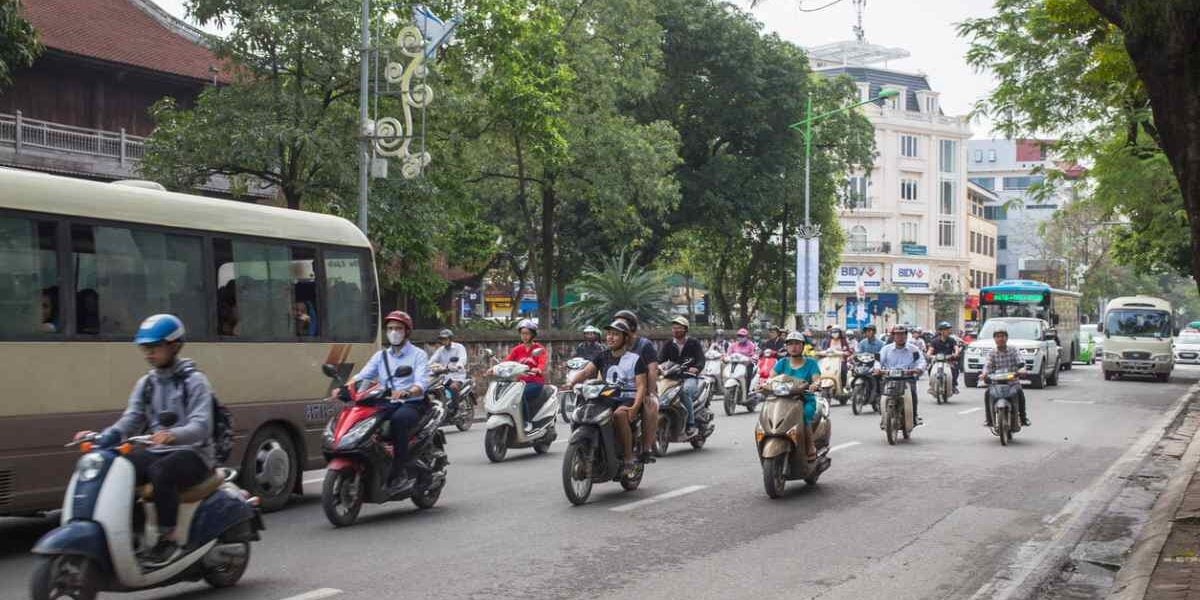
Motorbike taxis, locally known as Xe Ôm, are a popular and budget-friendly way to get around. You can find these almost anywhere, making them a convenient option if you're not carrying heavy items or luggage. Just remember to agree on the fare before you hop on to avoid any unexpected charges at the end of your ride!
Monthly transportation costs typically amount to around $54 per person.
The Lifestyle in Vietnam
Close-knit family relationships are central to daily life in Vietnam. In fact, it's not uncommon for two or even three generations to live under one roof.
Vietnamese people highly value community, and neighbors frequently come together to celebrate festivals such as the Vietnamese Lunar New Year, or Tet.
People typically share meals with family or friends, often gathering in a communal setting. Street food culture is widespread, with markets and vendors offering affordable, delicious meals throughout the day. Be sure to sample local dishes like pho and banh mi, and indulge in the vibrant bia hoi beer culture.
In recent years, Vietnam’s major cities have embraced modern lifestyle trends. Younger generations are adopting Western fashion, technology, and entertainment while still holding traditional values close to their hearts.
The hustle and bustle of urban life is a stark contrast to the slower pace of rural Vietnam, where life is quiet and revolves around community and nature.
Stunning patchwork-style rice paddies and majestic mountain ranges characterize the Vietnamese countryside. Around 80% of the population resides in rural areas, where many make a living through agriculture.
While the cities may offer better job opportunities, rural Vietnam offers its own unique and peaceful way of life.
Healthcare in Vietnam
Vietnam's healthcare system is undergoing significant reforms as the government works toward establishing a universal healthcare system. However, this is not yet fully in place. As a result, most citizens still pay out of pocket for medical services at both public and private hospitals in Vietnam.
Public hospitals are often under-equipped and offer lower-quality care, which leads many expats to purchase private health insurance in Vietnam. This allows them to access better care at well-equipped private hospitals with shorter wait times.
Moreover, English-speaking doctors are rare in public hospitals, while private hospitals usually employ them. This makes it much easier for expats to communicate and receive the care they need without language barriers.
Colombia
Colombia’s vibrant and colorful cities like Cartagena and Medellín attract people from all over the world.
Whether you're wandering through lush coffee farms or soaking up the lively atmosphere of urban centers, the country has something for everyone. And it won’t cost them much to enjoy it.
As one of the world’s most biodiverse countries, Colombia boasts a range of landscapes, including the Amazon River and the Andes Mountains.
Needless to say, it provides endless opportunities for adventurous expats seeking new experiences and outdoor thrills.
The Cost of Living in Colombia
Colombia is one of the cheapest countries to live in. According to Numbeo, only 19 other nations are more affordable, and none of them are as popular among expats.
Bogotá, Medellín, and Cartagena are the most expensive cities in Colombia. However, even in urban centers, living costs are much lower than cities in the United States, the United Kingdom, and most European countries.
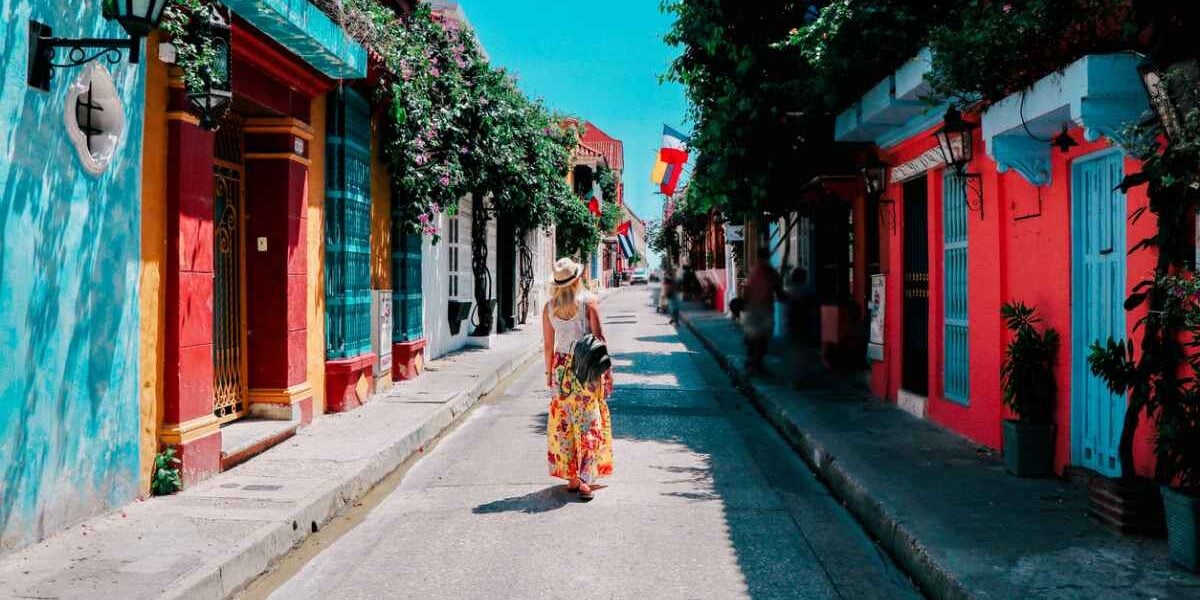
A major factor in Colombia's affordability is its affordable housing market. On average, rent in Colombia is about 80% lower than in the United States.
Those moving to Colombia can expect to pay around $735 per month, including rent.
Read More: The Cost of Living in Colombia
Transportation Costs in Colombia
Colombia’s public transportation system is reliable, featuring a modern bus network that is generally safe and comfortable. However, for a more secure experience, it's best to travel with well-established (albeit slightly pricier) bus companies.
Medellín’s metro system is considered the best in the country and features a network of connecting cable cars, trams, railways, and buses. A one-way ticket for local transportation costs just $0.75.
Taxis and bicycle rentals are also popular in many cities. Additionally, some cities, like Cartagena, are particularly walkable, making it easy to explore on foot.
The average monthly transportation cost for one person in Colombia is around $98.
The Lifestyle in Colombia
While Colombia may rank lower for safety compared to some other countries on this list, there are still plenty of low-crime areas where you can feel safe.
Some of the safest cities include Manizales and Cartagena, the latter of which is a stunning coastal city and a UNESCO World Heritage Site.
Colombia’s culture is shaped by a rich blend of African, Spanish, and indigenous influences, with a strong emphasis on family and respect for elders.
Much like Vietnam, it’s common for multiple generations to live together under one roof. Large family gatherings, meals, and celebrations are an important part of daily life.
Music and dance are at the heart of Colombian culture, and there’s no shortage of salsa dance classes. This is a great way to immerse yourself in the local lifestyle.
Healthcare in Colombia
Colombia's healthcare system, the Entidades Promotoras de Salud (EPS), combines public and private healthcare facilities at an affordable cost.
The country has some of the lowest out-of-pocket expenses in the world. This makes it an attractive destination for those seeking quality healthcare without breaking the bank.
That said, it’s advisable to purchase private health insurance in Colombia, as this will allow you to access shorter wait times and higher-quality facilities and services within Colombia’s private healthcare system.
Read More: Hospitals in Colombia
Indonesia
Indonesia’s tropical climate and stunning beaches attract foreigners from around the globe.
This Southeast Asian gem also offers a wealth of job opportunities for expats, particularly in sectors like tourism and hospitality, IT and technology, business and management, and healthcare.
With remote work on the rise, Indonesia has become an increasingly popular base for digital nomads. The laid-back island of Bali, often called the "Island of the Gods," has gained particular interest among expats in recent years.

Many flock here to spend their days practicing yoga, surfing, and exploring the vibrant café culture while working remotely in fields like writing, graphic design, programming, and digital marketing.
Indonesia ranks among the cheapest countries to live in and offers reliable internet infrastructure. This allows digital nomads to enjoy the best of both worlds.
Indonesia also offers a diverse range of schooling options, including international schools. These are popular among expat families as they follow foreign curricula and teach primarily in English. They also prepare students for admission to universities worldwide.
The Cost of Living in Indonesia
From rent and groceries to utilities and mobile phone plans, you’ll get plenty of bang for your buck in Indonesia.
A casual lunch out for one person will cost around $2, while dinner for two in a mid-range restaurant should be less than $20.
Even in popular locations like Bali or Jakarta, everyday expenses remain impressively low. Local markets offer fresh produce, meats, and spices at budget-friendly prices. Many rental properties also come furnished, which can help reduce initial setup costs for those moving to Indonesia.
Monthly living expenses, including rent, typically average around $608 per person. This makes Indonesia one of the most affordable places in Southeast Asia to enjoy a relaxed, high-quality lifestyle.
Read More: The Cost of Living in Indonesia
Transportation Costs in Indonesia
Many parts of Indonesia do not have sidewalks, so traveling on foot can be dangerous. As a result, most people prefer to drive, take a taxi, or ride a scooter to get around.
Jakarta, Indonesia’s capital city and largest urban center, has a more developed public transport system with a relatively efficient network of buses, commuter trains, and the TransJakarta Bus Rapid Transit System.
That said, traffic is notoriously bad, which often pushes locals and expats alike to use motorbike taxis – locally known as ojeks – to navigate the city more quickly.
The average one-way ticket on local public transport costs around $0.36, while a monthly transit pass costs about $14.
Overall, the average monthly transportation cost in Indonesia is approximately $45 per person. This makes it an affordable country to get around, even if you rely on rideshares or private scooters.
The Lifestyle in Indonesia
Indonesia is a diverse and multicultural country where the influences of Middle Eastern, Chinese, Indian, and European cuisines have all left their mark on the nation's food culture.
This rich blend is just one example of how the country embraces its cultural diversity. Religion plays a central role in daily life, with around 80% of the population practicing Islam.
Observances such as Ramadan and the celebration of the Prophet Muhammad’s birthday are widely celebrated and deeply ingrained in the culture.

These traditions also influence how people dress and behave in public. In more rural areas, it’s best to dress conservatively. Meanwhile, urban centers like Jakarta and tourist destinations like Bali tend to be more relaxed.
When it comes to recreation, the Indonesian people enjoy a variety of activities, including kite flying, martial arts, and badminton. These sports are not only popular but also woven into the fabric of Indonesian social life.
Indonesia's tropical climate provides year-round warmth, while its frequent volcanic activity adds another layer of intrigue to the landscape.
Healthcare in Indonesia
Public hospitals in Indonesia are often overcrowded, and long wait times are common, making private healthcare an attractive option for expats.
Many foreigners opt for international health insurance in Indonesia to ensure access to high-quality care and shorter wait times at private facilities.
Another important factor to consider is the language barrier. While many Indonesians speak basic English, navigating healthcare can be difficult, especially in public hospitals.
With private coverage, you’ll have better access to English-speaking healthcare providers, making it easier to communicate and receive the care you need.
Read More: Indonesia's Healthcare System
Thailand
Thailand is one of the safest countries in Southeast Asia and one of the cheapest countries to live in worldwide.
Whether you choose to live in bustling cities like Bangkok and Chiang Mai or opt for quieter beachside towns and islands like Hua Hin or Koh Samui, the "Land of Smiles" offers a variety of living environments to suit every preference.
The Cost of Living in Thailand
Like in many countries, larger Thai cities like Bangkok come with a higher cost of living but also feature better amenities. You’ll also find a wider range of options for entertainment, dining, public transport, and international schools.
If you venture into smaller cities such as Chiang Mai or Pattaya, however, you’ll often find that the cost of living is lower than the national average while still offering good facilities and amenities.
The average monthly living cost for one person in Thailand, including rent, is about $875 USD per month.
Read More: The Cost of Living in Thailand
Transportation Costs in Thailand
The best transportation options in Thailand are located in major cities. Bangkok, for example, has an extensive network of buses, metro trains, taxis, tuk-tuks, and even ride-sharing apps.
Many of these transportation choices are also available in mid-sized towns and popular tourist destinations throughout the country.
You'll typically take a domestic flight or ferry to reach Thailand's famous beach islands. However, trains are a popular and comfortable choice for destinations like Chiang Mai or Kanchanaburi.
On average, the monthly transportation cost in Thailand is about $120 per person.
The Lifestyle in Thailand
The concept of Sanuk (“fun”) reflects the Thai people's desire to find joy in everything they do, which is why Thailand has earned the nickname "Land of Smiles."
This joyful approach to life is also evident in the country's vibrant festivals. One of the most famous is Songkran, the traditional Thai New Year, which locals celebrate with water fights, temple visits, and family gatherings.
Another well-known festival is the Yi Peng Festival, which is celebrated in Northern Thailand's Chiang Mai. This stunning event features thousands of paper lanterns (khom loi) released into the night sky.

Meanwhile, Loy Krathong, a nationwide celebration, sees people float decorated baskets (krathongs) on rivers, lakes, and ponds to honor the water goddess and symbolize the release of bad luck.
Family is the heart of Thai society. Multiple generations often live together, and children are expected to care for their parents and grandparents.
One of the challenges expats may face in Thailand is finding work, as many jobs are reserved exclusively for Thai nationals. For this reason, it's best to find employment before you move to Thailand.
Learning some Thai can also be helpful. Only about 27% of Thais speak English fluently, although people in major cities like Bangkok and tourist hotspots commonly use it.
Knowing a few useful phrases will not only help you get around more easily but also build a deeper connection with locals.
Healthcare in Thailand
Thailand's healthcare system is well-developed and includes a taxpayer-funded program called the Universal Coverage Scheme (UCS), which provides free or low-cost medical care to Thai citizens.
However, most foreigners aren’t eligible for this system unless they have permanent residency or work for a Thai company. As a result, many expats choose to purchase a global health plan before moving to Thailand.
Having international health insurance in Thailand gives them access to the country’s excellent private healthcare system. Here, they can receive high-quality care from English-speaking doctors, especially in major cities like Bangkok, Chiang Mai, and Phuket, all at affordable prices.
Private coverage also helps avoid the long wait times common in public hospitals and offers greater flexibility when choosing doctors and scheduling appointments.
Read More: Hospitals in Thailand
Mexico
Mexico remains one of the cheapest countries to live in and attracts expats, retirees, and digital nomads alike. Life here is significantly more affordable than in the UK or the US, and locals are known for their warmth and hospitality.
According to HSBC's Expat Explorer Survey, it consistently ranks high in quality of social life and ease of cultural integration.
However, safety can be a concern in some areas, so it’s important to research locations carefully before moving to Mexico and stay aware of your surroundings.
The Cost of Living in Mexico
The cost of living in Mexico is lower than that of the US, Canada, and the UK, though it varies by region.
Popular tourist areas, such as the Riviera Maya, Puerto Vallarta, and Los Cabos, tend to be slightly more expensive, especially when it comes to real estate, dining, and shopping.
That said, there are plenty of opportunities to invest in affordable real estate and find a place to call home in Mexico.
Average monthly living expenses, including rent, are about $890 per person.
Read More: The Cost of Living in Mexico
Transportation Costs in Mexico
Most major cities in Mexico offer a wide range of public transportation options, including microbuses, metro systems, and city buses, making urban commuting relatively easy and affordable.
However, public transport is more limited outside metropolitan areas like Mexico City. In smaller towns or rural areas, you may need to rely on taxis, rideshare apps, or rental cars to get around.
Many expats also notice that walking isn’t always practical because sidewalks are often uneven or poorly maintained.
On average, the monthly cost of public transportation in Mexico is around $78 USD per person.
The Lifestyle in Mexico
Mexico offers a slower, more relaxed pace of life, although it still feels vibrant and full of energy.
If you’re moving from Western Europe or North America, where daily life tends to move faster, it might take some time to adjust. But once you ease into the rhythm, you'll likely appreciate the emphasis on living in the moment.
Mexico is also home to world-famous cultural celebrations, including the spectacular Día de los Muertos (Day of the Dead). This deeply spiritual festival honors those who have passed and welcomes their spirits back to be remembered and celebrated.
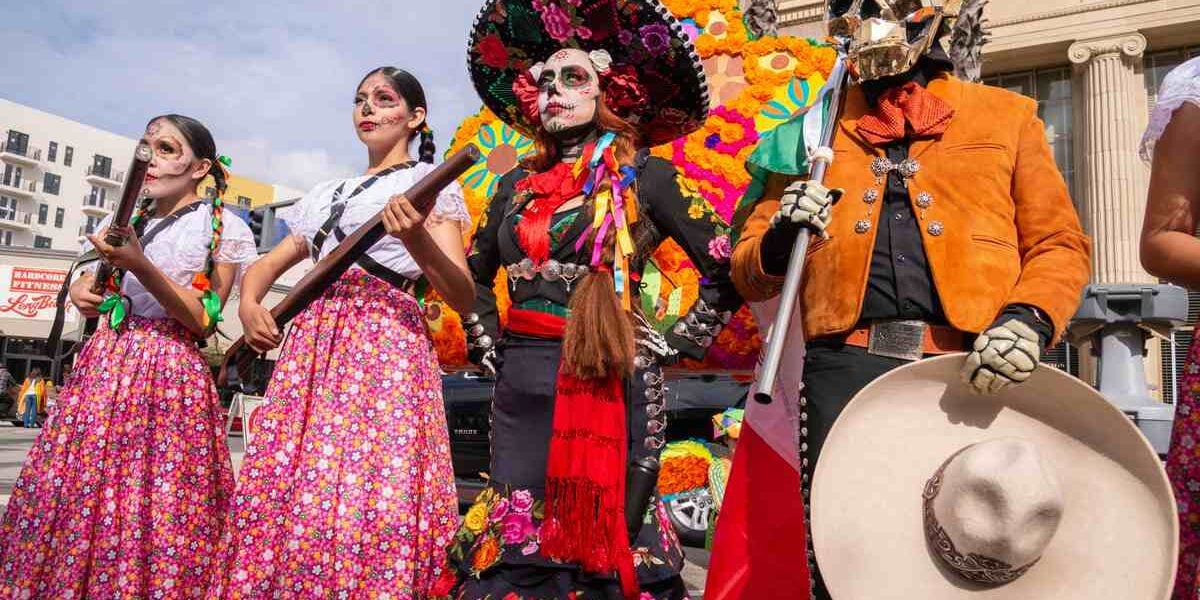
Mexico also has an incredibly rich food culture, ranging from Michelin-starred restaurants to humble taco stands on the street.
Corn, beans, squash, and rice are staples of Mexican cuisine, along with avocados, chili peppers, and tomatoes, which feature in many traditional dishes.
Family is an integral part of Mexican society, and it’s common to see multiple generations living together or gathering regularly for meals and celebrations, such as quinceañeras, the vibrant 15th birthday parties held for girls.
Religion also plays a key role. Most Mexicans identify as Catholic, and religious holidays like Easter and Christmas are widely celebrated with strong community and family traditions.
Read More: The Best Places to Live in Mexico
Healthcare in Mexico
Mexico’s healthcare system is complicated, to say the least. It includes a mix of private, public, and employer-funded options.
The country’s universal system provides free or heavily subsidized healthcare to all Mexican nationals. Expats who are legal residents can also access public healthcare by enrolling in programs like IMSS (Instituto Mexicano del Seguro Social), either through their employer or by paying into the system voluntarily.
While this is a major benefit, the public system can sometimes be inconsistent when it comes to wait times and service quality.
As a result, many expats choose to purchase private international health insurance in Mexico, which gives them access to private hospitals and clinics known for higher standards of care.
Read More: Hospitals in Mexico
Other Affordable Places to Live
Looking to explore more great countries where you can live well on a modest budget? Here are five low-cost destinations we highly recommend:
India
India is one of the cheapest countries ito live in for expats. However, adjusting to the culture and lifestyle can be challenging for those coming from Western nations. Common concerns include pollution, overcrowding, and safety.
India ranks 52nd out of 53 countries in the 2024 InterNations Expat Insider Quality of Life Index, largely due to these issues.
That said, many expats still enjoy living in India, where they can explore its rich cultural heritage, diverse regional cuisines, and unique natural landscapes.
Monthly living expenses for one person, including rent, are about $440.
Read More: The Cost of Living in India
Philippines
The Philippines is famous for its stunning beaches, lush rainforests, and mountain scenery, which attract nature lovers and adventurers alike.
However, the country also faces challenges like natural disasters and limited infrastructure, which can be a culture shock for people from more developed nations.

While Manila offers modern amenities and development comparable to other Asian capitals, rural and island areas tend to be less developed. Still, the warmth and friendliness of the Filipino people help many expats feel welcome and at home.
Monthly living expenses in the Philippines, including rent, average $615 per person.
Read More: Healthcare in the Philippines
China
Over 845,000 foreigners live in China, with Americans making up about 16% of that group.
China combines a deep cultural legacy, diverse geography, and vibrant cuisine with expanding economic opportunities. It's also the most affordable country in East Asia for expats.
Living in China gives you access to other expat-friendly destinations in the region, such as Japan, South Korea, Taiwan, and Thailand. However, newcomers should brace themselves for cultural differences and, in some areas, language barriers.
Moving to China will also provide easy access to nearby destinations popular with expats, such as Japan, Thailand, Taiwan, and South Korea.
Monthly living expenses in China, including rent, average $686 per person.
Read More: The Cost of Living in China
Brazil
Brazil may be best known for its colorful Carnival festival, but it has much more to offer expats. On average, rent is 81% cheaper than in the United States.
Moving to Brazil is an excellent choice for those who appreciate a diverse culture, hospitable people, and strong family values. Food, soccer, music, and dance are also at the heart of this unique South American country.
However, safety can be a concern in certain regions, so it's important to research neighborhoods carefully and stay alert in public spaces.
Monthly living expenses in Brazil, including rent, are about $705 per person.
Read More: The Brazilian Healthcare System
Panama
Immigrants (especially retirees) are drawn to Panama for its low cost of living, favorable tax laws, warm climate, and quality of Panama's healthcare system.
The country offers modern medical facilities, affordable treatment, and well-trained doctors – many of whom speak English – making healthcare both accessible and high quality for expats.
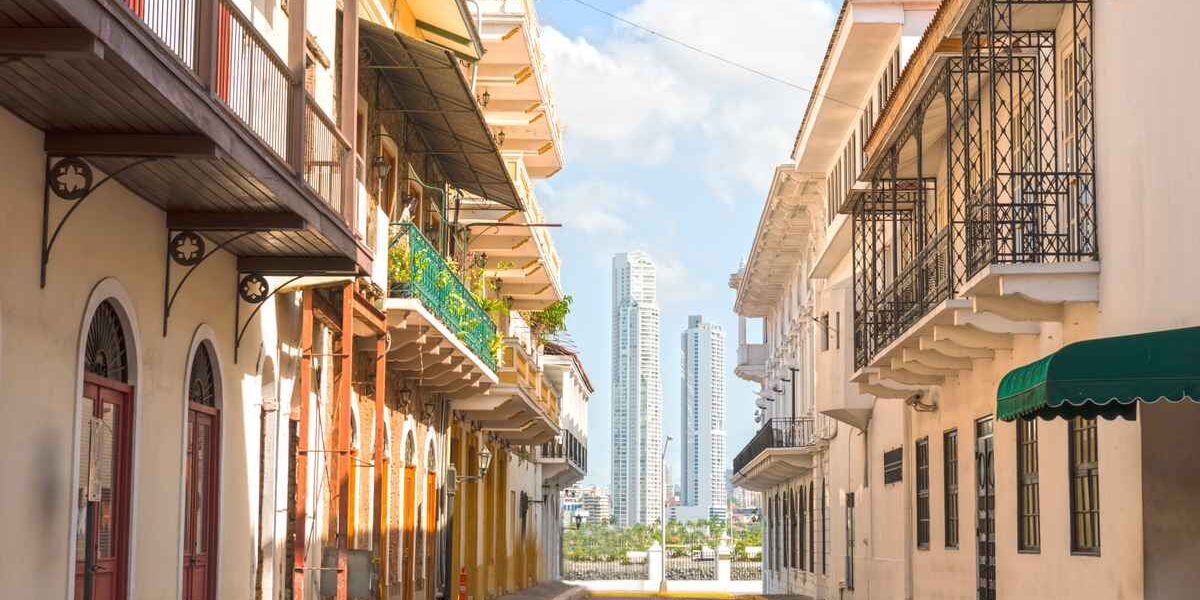
Expats can find many safe cities to live in Panama, especially along the Pacific and Caribbean coasts. They can also legally buy property, which is often restricted or prohibited in other countries.
From vibrant city life to serene coastal escapes, Panama gives expats a wide range of lifestyles to choose from.
Whether you're looking for modern amenities in Panama City or a slower pace in beachside towns like Coronado or Bocas del Toro, there's a perfect spot to suit your needs.
Monthly living expenses in Panama, including rent, average $1,260 per person.
The Pros and Cons of Living in One of the Cheapest Countries in the World
No matter where you choose to move, there will always be pros and cons to living in one of the world’s most affordable destinations.
For example, infrastructure and education standards may not meet the same level you’re accustomed to back home. Additionally, you may have to adjust to things you take for granted, such as clean drinking water or 24-hour convenience stores.
However, if you decide to relocate to one of the affordable countries on our list, the significantly lower cost of living will allow you to enjoy a higher quality of life for much less than you’d pay at home.
That said, while living in an affordable destination can improve your lifestyle, it’s still essential to protect your health. In many of these countries, access to healthcare may not always meet the standards you're used to.
This is where international health insurance can make all the difference, ensuring you have access to quality care, no matter where you are. With comprehensive coverage, you can enjoy peace of mind while living abroad, knowing you're protected in case of any health issues.
Get a quote today to secure your coverage and enjoy a worry-free life in your new home abroad.

